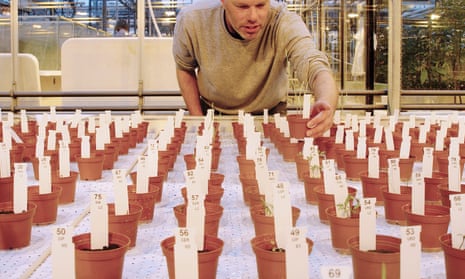Crops of four vegetables and cereals grown in soil similar to that on Mars have been found safe to eat by Dutch scientists.
Radishes, peas, rye and tomatoes grown on dirt mixed on Earth to copy that of the red planet were found to contain “no dangerous levels” of heavy metals, said the team from Wageningen University in the Netherlands.
“These remarkable results are very promising,” said senior ecologist Wieger Wamelink.
“We can actually eat the radishes, peas, rye and tomatoes, and I am very curious what they will taste like.”
Mars settlers would have to take their first food supplies with them and then plant crops in order to survive.
In the 2015 film The Martian, Matt Damon plays an astronaut stranded on Mars who has to grow potatoes to survive.
Using soil developed by Nasa, the university has been experimenting since 2013 and has managed to raise 10 crops.
But some uncertainty remains about which ones might absorb the high levels of heavy metals such cadmium, copper and lead found on Mars.
Further tests are needed on the remaining six crops, including potatoes, in research that is being backed by a crowd-funding campaign.
Nasa plans a manned trip to Mars within the coming decades and similar projects are being pursued by the US billionaire Elon Musk and the Dutch company Mars One, tentatively aiming to set up human colonies.
“It’s important to test as many crops as possible, to make sure that settlers on Mars have access to a broad variety of different food sources,” said Wamelink.
With Agence France-Presse

Comments (…)
Sign in or create your Guardian account to join the discussion